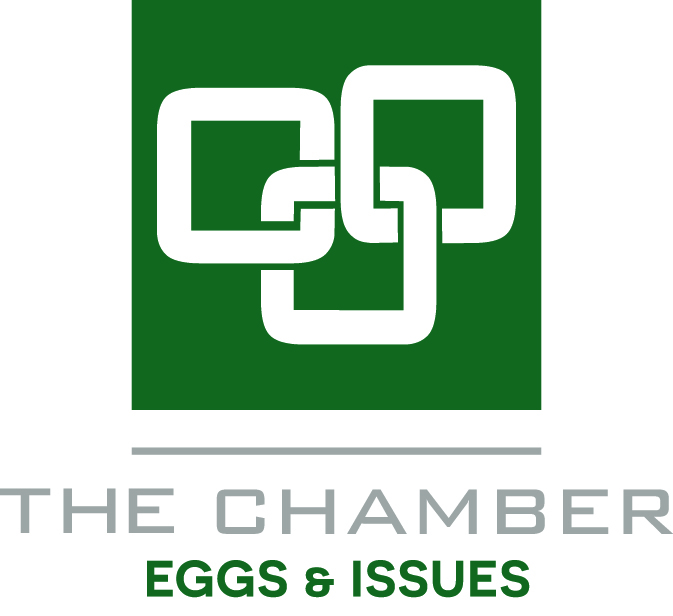-
Higher education overview and updates from institution presidents: Eggs & Issues recap
-
Higher education overview and updates from institution presidents: Eggs & Issues recap

Our region’s higher education institutions are integral to the vitality of our community, and with a combined power of 35,000 students, they have an impressive economic impact and fill valuable workforce needs. We gathered at December’s Eggs & Issues to talk to the presidents of the five largest institutions – those that make up the Tri-College partnership – to learn more about each of their initiatives, successes and updates.
President William Craft, Concordia College, announced about the Concordia Now initiative. Launched in September, it’s a new model for its three schools in one college. A new tuition model, effective next fall, has reduced price for students by 35% — and that’s before financial aid. This plans also includes the CobberAssurance Loan Repayment Program, and the Cobber Flex Year, which allows enrolled students a fifth optional year completely free of tuition.
President Anne Blackhurst, MSUM, talked about a shift in enrollment, in which they’ve seen graduate enrollment double since 2014, and now makes up about 20% of total enrollment. They’ve also recently added new doctoral and masters programs. She referred to MSUM as a “mission-driven institution” and noted their dedication to making a difference in the lives of their students. The university’s three primary strategies are focused on student achievement and ROI, creating a diverse and equitable community, and making sure they are indispensable to Moorhead and the larger region. MSUM is the second-largest employer in Moorhead and has the state’s lowest tuition.
President Dean Bresciani said that NDSU is, by thousands of students, the largest residential campus in the state, as well as the largest producer of R&D. He talked about the NDSU Research & Technology Park, which serves as a business incubator and consistently operates with private and public firms. It currently is at capacity with a waiting list, and has been so successful that the Bank of North Dakota and Midco have moved in to be a support to the startups there. He also mentioned seven out-of-state research centers and several separately funded agencies
President Carrie Brimhall, M State, shared their tagline of “Start here, stay here,” referencing the 96% of its students who work in Minnesota or North Dakota, and mentioned the importance of embracing a diverse community. She talked about the pandemic, and mentioned that they will be there for the community as it picks up the pieces and pivots to meet the new demands of its workforce.
The other panelists also made comments regarding reaction to the pandemic, talking about the importance of innovation and flexibility. Blackhurst also said their new use of technology is something that they will not go back on, and Richman said that even recruiting visits have now gone virtual.
President John Richman, NDSCS, noted the college’s mission, which is to educate and train the workforce for North Dakota and this region, and has a 98% placement rate. He talked about student affordability through scholarships and grants, which has afforded an impressive 71% of students to attend tuition free. “We believe in our partnership with K-12,” he added, referencing their leadership of our region’s first career workforce academy to create and opportunities for career awareness, exploration and pathways, leading students into to the workforce.
Richman reflected back on early expectations of the pandemic and the assumption that enrollment at two-year colleges would increase, but that didn’t play out. However, recent data shows that more currently enrolled students are registering for second semesters to continue their education.
As we look to the future, Craft noted that it’s important to focus on who will be seeking education and what they will be learning. “The range of students coming to our colleges is only going to get wider, and our institutions, our communities and our nation, are enriched by the gifts and the talents and the cultures that enlighten our entire learning community,” he said.
The presenters also talked about their various partnerships with each other, with businesses, non-profits, public sector organizations and beyond. We are lucky to have such a strong, collaborative spirit of education in the FMWF region, and we thank these institutions for their work and support of the community.
As Bresciani commented, our foundation based in the Tri-College partnership means we have the largest and best colleges and universities in the nation, right in our backyards.
Richman offered a challenge to Chamber members to be public servants, serve on advisory committees or run for school boards, and help our area colleges establish the curriculum and set the learning outcomes that we need in the entry level positions at our businesses.
#FMWFEggs gives me an opportunity to learn about what's happening at our regional colleges. All are incredibly important to our community. @PrezBlackhurst continues to inspire me every day! 🐉❤️ https://t.co/ALiNB3ksas
— Kara Gravley Stack...#MaskUpDragons (@MSUMKaraGS) December 1, 2020We must continually ask “who are our students and what do they need from us?” - @PrezBlackhurst #FMWFEggs
— Kirsten Jensen ❤️ (@MSUMKirsten) December 1, 2020Tell a Friend
-
A catalyst for growth and prosperity.

